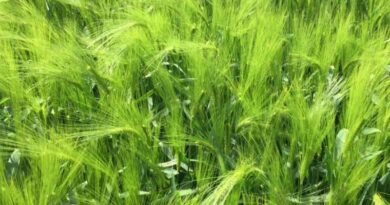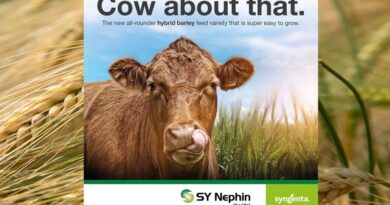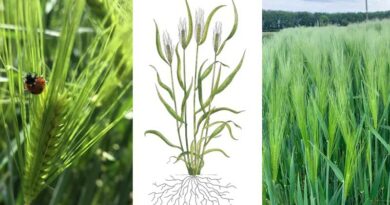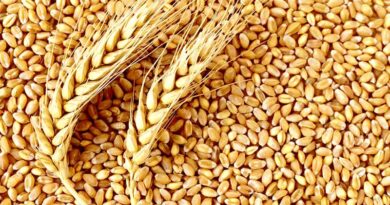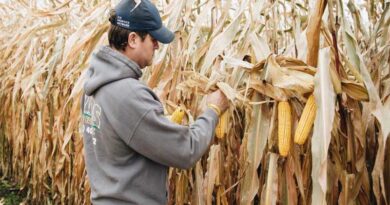Hybrid barley adds up to more than just high yield
12 June 2023, UK: We’re celebrating 20 years of hybrid barley! In 2003, we launched our first hybrid variety and we’re now proud to offer a much wider selection!! Hybrid barley has grown in popularity and performance over the years due to a number of benefits associated with it, which this article will go on to explain.
As the progeny of genetically different parents, all hybrids (including hybrid barley) will exhibit superior traits in comparison to both parents. This is a phenomenon known as heterosis or hybrid vigour.
Hybrid vigour is the driving force behind the higher yields seen when comparing hybrid to conventional barley. For the last 9 years of UK AHDB Recommended List trials a Syngenta Hyvido hybrid barley has been the highest yielding variety tested.
Not only do hybrids deliver high yield, they do so every year and this reliability, or yield stability, means many UK farmers choose to continue growing hybrids as they know that they will deliver no-matter what the season may throw at them.
Superior grass weed suppression: hybrid barley: grass weed suppression comes as standard
Hybrid barley has been independently scientifically proven[1] to be better at competing with black-grass (Alopecurus myosuroides) than conventional barley and wheat. Similar effects have been observed in Syngenta trials with hybrid barley demonstrating high levels of suppression against ryegrass (Lolium sp) and brome (Bromus).
Hybrid vigour is responsible for the superior grass weed suppression from hybrid barley and the benefit of heterosis extends both above and below ground. Taller plants with higher tiller numbers are more competitive with grass weeds for space and light. Significantly larger root mass underground means that hybrid barley plants are more effectively anchored in the ground and provide a larger surface area for uptake of essential nutrients and water.
Hybrid barley should be an essential element of any integrated pest management strategy targeting grass weeds. Hybrid barley grass weed suppression works irrespective of grass weed herbicide resistance status and trials have demonstrated that the remaining grassweeds in crops of hybrid barley produce fewer tillers, smaller heads and fewer seeds which could reduce seed return for the following crop.
Hybrid vigour drives superior nitrogen and water use efficiency: hybrid barley can do more, with less
Syngenta trials in conjunction with ADAS have demonstrated that hybrid barley shows statistically significant enhanced nitrogen use efficiency when compared to conventional varieties. This difference was driven in part by an improvement in nitrogen utilisation, which suggests that as a crop, hybrid barley is able to do more… with less.
“These results should provide a level of confidence to growers who are looking to make modest reductions in their N rates with hybrid barley, in response to cost and sustainability pressures.”
Dr Sarah Kendall ADAS
Hybrid barley has high specific weight: a specific target for Syngenta breeding expertise
Hybrid barley varieties now have equivalent specific weights to 2-row feed varieties and this is by design.
Recognising the gap between hybrid and conventional varieties that existed in the early 2000s, Syngenta hybrid barley breeders have actively targeted increasing the specific weight of hybrid barley varieties.
Varieties selected for potential progression in the UK must pass a series of stringent internal thresholds before they are entered into the National List and Recommended List process. By setting the bar high for specific weight, Syngenta breeding has actively selected for varieties that combine high yield and high specific weight.
New varieties, including newly recommended SY NEPHIN, have some of the highest specific weights listed in this seasons AHDB Recommended List. This means farms choosing hybrid barley can do so with the confidence that they will meet feed grain contract minimum specifications.

Hybrid barley is early to mature: early harvest, early cashflow, early drilling
Hybrid varieties are some of the earliest maturing varieties on the AHDB Recommended List, which provides 2 clear benefits to farmers:
- Hybrid crops are ready to harvest early which means that the grain can leave the farm earlier, providing cashflow early in the season.
- Hybrid crops are out of the field early providing an ideal entry for crops of oilseed rape.

Hybrid barley varieties have excellent resistance to disease: flexible disease management in extreme and unpredictable weather
Good spray days can be few and far between but when the conditions are perfect it can be a challenge to get round all of the hectares that need to be sprayed.
Excellent disease resistance allows for flexibility when it comes to spraying, and peace of mind when the weather isn’t conducive to fungicide applications.
New hybrid barley varieties, including newly recommended SY NEPHIN delivers very high untreated yields, which is an excellent indication of good all-round resistance to disease. This makes hybrid barley an excellent choice for farms looking for built in flexibility when it comes to disease management.

[1] Cook & Roche 2018. Enhancing the competitive ability of hybrid barley for the control of black grass (Alopecurus myosuroides) in the UK. Aspects of Applied Biology 141, 47-55
Also Read: Best Agrolife becomes the 1st Indian Company to Manufacture Tricolor Agrochemical Blend
(For Latest Agriculture News & Updates, follow Krishak Jagat on Google News)


